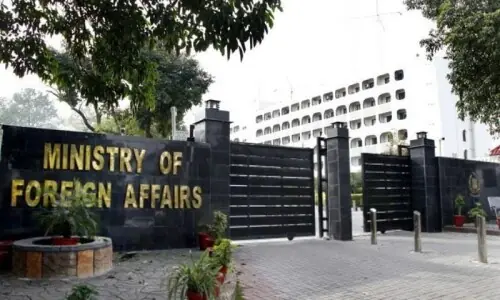DR Taqi Abidi had taken a start as a research scholar solely devoted to the study of Urdu marsiya. His first noticeable venture was the study of a selected marsiya by Mir Anis, which he published along with its English translation by David Mathews in a deluxe edition under the title Tajziya Yadgar-i-Anis.
But soon he realised that more than Anis, Mirza Dabeer stands in need of research and study as he thinks he has been badly neglected by the scholars and the critics since the time when Shibli's Mawazana-i-Anis-o-Dabeer was published. With this realisation he now devoted himself to a hectic research and study of the writings of Dabeer.
He had planned to bring out all his writings along with his marsiyas in several volumes. A number of volumes have already appeared, the latest being the one consisting of his rubaiyat.
However, while still engaged in the study of Dabeer, he perhaps developed a feeling that he should not confine himself to marsiya alone. With this realisation he turned to other poets, more particularly Ghalib, in an attempt to expand the scope of his research.
In the case of Ghalib, Dr Taqi has brought out two compilations in quick succession which speak of his deep study in the field of Ghalibiyat.
In 1906 he had published his research work on Ghalib's devotional poetry in Persian and Urdu compiled under the title Ghalib Diwan-i-Naat-o-Munqabat.
Now just after two years he has been able to bring out a collection of Ghalib's Persian verses compiled
in two volumes along with his new research on those verses.
As is known to us, Ghalib attached much importance to his Persian poetry. But, ironically, his readers differed with him. They held him in high esteem and regarded him as a great poet on the basis of his Urdu
poetry.
His Urdu Diwan has been among the best sellers of Urdu literature.
It has been a great source of inspiration for singers, who sung his Urdu ghazals and played a great part in popularising him, more particularly in India. To top it all, researchers and critics too concentrated more on his Urdu verses than on his Persian poetry.
But now it seems that the popularity of Ghalib's Urdu verses has reached its saturation point. Ghalib lovers are now showing signs of turning to his Persian verses with the curiosity to know about his achievements in that language.
The Ghalib Institute in Delhi is perhaps the first to realise this changing trend. It has taken the lead to bring out Ghalib's Persian works one after the other.
It has already brought out his collection of Persian masnavis along with their translations in Urdu by
Zoe Ansari. The 11 masnavis included in the collection are followed by a few more poems in the form
of naat, munqabat, and munajat.
Now the Institute has brought out Ghalib's collected works in Persian in two big volumes covering 1,399 pages. In fact, his Persian verses are far more in number than his Urdu verses. The compiler, Syed Taqi Abdi, has collected and compiled these verses after much research.
The collection is preceded by a long article, in which Abdi has exhaustively discussed Ghalib's Persian poetry. Apart from ghazal, Syed Abdi has also cared to talk about other forms employed by Ghalib.
Perhaps he has concentrated more on his Mairaj Nama which he has discussed in the background of Persian mairaj namas. He has in particular referred to Iqbal's Javaid Nama. He thinks that Iqbal may have drawn inspiration from this poem.
Divan-i-Naat-o-Munqabat too appears to be the outcome of Dr Abdi's strenuous research. The text is preceded by a long preface in which he has discussed Ghalib's devotional poetry.
So now we have with us Ghalib's Persian poetry brought out in different volumes after a great deal of research and after being studied in a new way.































